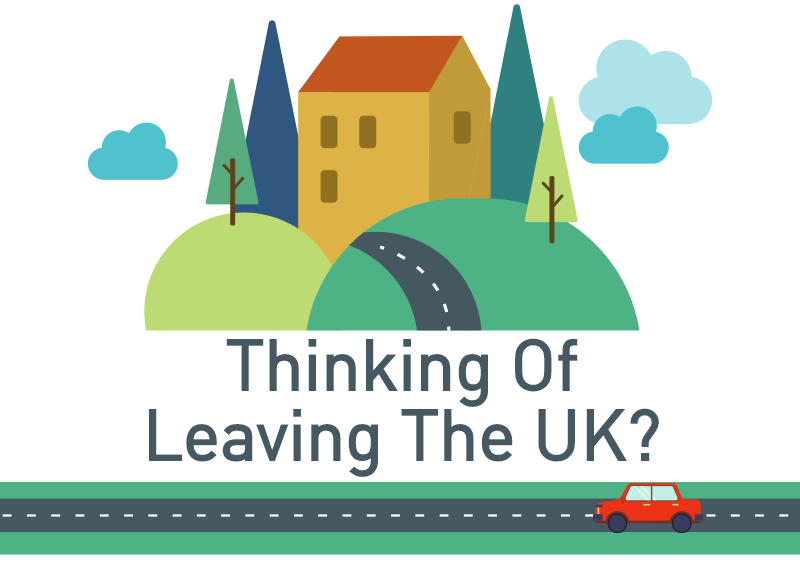It’s one thing to travel the world and enjoy new experiences in different countries. Of course we highly encourage this and it’s often not as scary as people think when they haven’t had much (or any) experience travelling.
However, if you’re thinking of permanently leaving the UK, this is a whole new matter! That’s not to say that you shouldn’t be thinking of doing this, but it is a subject that deserves careful consideration before you make any firm commitments. When looking to move to another country on a full time basis, there will be many factors to consider.
Here are some of the most relevant stats regarding moving away from the UK.
Every year, roughly two million people in the UK will move to a new home.
Of these, around 15-20% will be emigrating to a different country.
More than half of people leaving the UK do so because of work, with other less common factors being education or joining someone else abroad
It’s understandable to consider moving away from home if you have a better job or other great opportunities waiting for you abroad. That said, many people also leave the country without much of a real plan, and although this is risky it can certainly work out well if you’re highly adaptable.
Some of the factors you really need to consider before actually going ahead include the following questions. You should make sure you have answers to all of these questions if you want to feel well-prepared.

Is your paperwork in order? You will need a specific visa to travel to most countries outside the EU if you want to stay permanently. It’s very important to understand the requirements of where you’re moving to and make sure you provide everything they expect.
Have you arranged insurance? We can get very accustomed to having access to the NHS in the UK, but healthcare is not usually free at the point of use in other countries unless you have appropriate insurance. Travel and home insurance will also be necessary in most cases, so you will need to do your research properly.
What are you doing with your possessions? It might not be practical for you to take everything you own with you when you move abroad, so you may need to put items in long term storage. However, this may not be a permanent solution. For example, if you leave your items in storage in the UK and travel to Australia, you effectively have no access to your items and you’ll be paying to keep them. You need to consider whether it’s worthwhile or even possible in your situation to do this, or whether you should simply sell most of your items.

Is language a problem? There are many countries you can move to where English is the only language you’ll ever need, but it’s important to remember that this is far from universally true. Even if English is commonly spoken in the country you’re moving to but it isn’t the first language of everyone there, you will probably find yourself at a huge advantage by learning it. Some countries are simply more open to multiple languages and people might be surprised if you don’t speak more than one.
Aside from the above points, you need to make sure you don’t make a number of common mistakes. People from the UK often make assumptions about countries that interest them and fail to plan properly. Common errors include the following…
Failing to do enough research about laws, costs and other details
Not being nearly organised enough to cope with the stress
Leaving too many things until the last minute
Poor packing so things are damaged or left behind
Running out of money or miscalculating costs significantly
Poor communication and coordination between all parties involved
There are many more considerations that will be specific to any individual country. Of course, it’s true that you aren’t necessarily tied to a country permanently when you make the move there. Perhaps it would be worth considering what might happen if you decide it’s not for you after a certain amount of time, and maybe try to keep a door or two open behind you just in case. It might be a costly decision, but ultimately you should have the option of returning home if things don’t work out.

